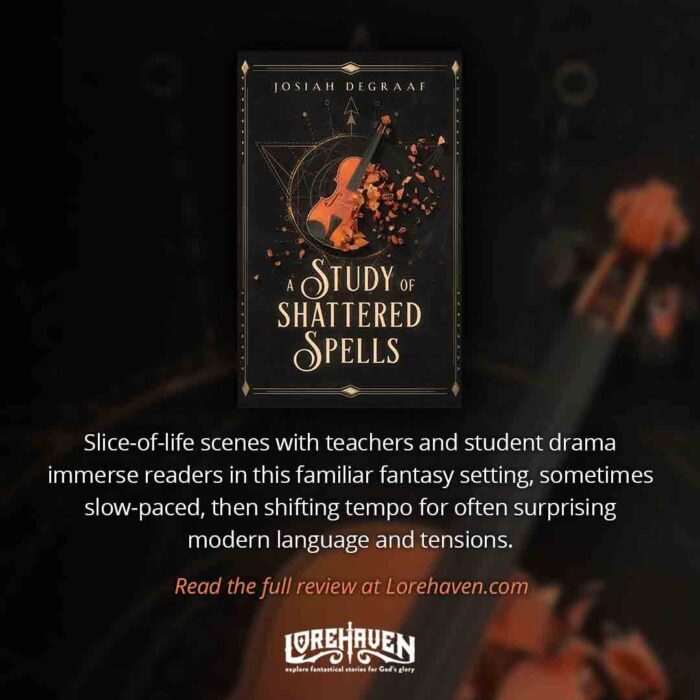Beware the Real Danger of Entertainment
What happens when Christian fans of popular culture1 encounter challenges from other Christians (such as this article by Brad East)?
We may roll our eyes and start listing all the wonderful God-glorifying blessings from films and popular fiction. Or we simply respond by making caveats about the limited amount of entertainment we allow ourselves to enjoy.
These responses can be necessary, though we risk ignoring the fact that Christian critics of popular culture engagement may see real symptoms in their communities or congregations. Still, the critics often misdiagnose the illness. Critics may suppose we spend too much time watching TV or playing games, but the real problem is that too many Christians are passively engaging these forms of entertainment.
Christians, disengage your couch-potato mode
Christians convicted about their entertainment habits may reach for their remotes or game controllers and know something isn’t right in their hearts. Perhaps their choices make them feel further from Christ, so they assume these practices are not good for them. After all, if TV triggers my conscience, isn’t something wrong with the screen? We make simple correlations between our actions and our sense of conviction, and draw conclusions that aren’t as straightforward as they seem.
Our danger doesn’t await in our acts of watching movies, reading books, or playing games. Instead, we face spiritual threats in how we engage popular culture.
Of course, if your conscience is triggered or you feel an activity distances you from Christ, listen to that leading. This may be the Holy Spirit prompting you to change. But what in your heart may need to change? We need to ask if we have a passive, pleasure-seeking, all-about-me, couch-potato mode instead of critical thinking.
“What? I don’t lack critical thinking!” you might say. Before you turned on that movie, you may have checked reviews listing sexual content, cursing, and LGBTQ agendas. This doesn’t mean you think critically about the story you’re ingesting.
I know dedicated Christians who ignore underhanded, secular themes in stories because they don’t want to hold non-Christians to a biblical standard of truth-telling. Yes, we should acknowledge that non-Christians will tell stories full of flaws and not expect them to abide by our worldview. But for our own sakes, we must actively note when promote error, every time we see these errors appear.
It’s dangerous to treat media as “just entertainment.” For most people, that word connotes passive pleasure-seeking. However, for Christians who must do all for the glory of God, we don’t have the option of such passivity or apathy.
If you’re still absorbing the world’s messages without thinking critically about them, it won’t help if you limit your TV-watching or book-reading time.
The missing link of critical thinking
How can we become better critical thinkers about popular culture?
Unfortunately, it’s becoming more difficult to find reliable sources for such information. Evangelical seminaries neglect teaching logic classes. More universities are dropping these class and degree programs—a frightening trend during an age of such tension and division. Although many Christians write wonderful books about discernment, surprisingly few of these authors have backgrounds in formal logic or ethics. They offer opinions based on their Bible studies and applied ethics (what to do in a given situation) without any additional study of meta ethics (ethical foundations and principles). Their resources are helpful, but often limited.
Space doesn’t permit a full explanation, so let’s outline the basics and consider good resources. I’m grateful my husband, theologian and philosophy professor Timothy Jacobs, stepped in to write this next section.
A Christian philosopher’s critical thinking toolbox
First, divide good ideas from bad ones.
Our first goal in critical thinking, or logic, is to separate good ideas from bad ideas by considering their underlying reasons, arguments, or evidence. All truth is God’s truth, so we should accept the truth even when it comes from non-Christian sources. Don’t reject or accept an idea just because of its origin. This is called the genetic fallacy. A thing may have a “Christian” label or author, but that doesn’t mean the beliefs, worldview, or advice are biblical.
God has given common grace to even non-Christians by writing his law on their conscience (Romans 2:15). Be sure not to throw babies out with bathwater. Instead, acknowledge and take joy in the truth God gives us, even through non-Christian sources.2
Second, watch out for emotion-based marketing.
Be aware that marketers want to sidestep your critical thinking and get you to make emotional decisions. To avoid this, we can break down media into what the philosopher Aristotle called ethos, pathos, and logos.
- Ethos is our trust in authors, creators, and producers. This is the most persuasive element of communication, because if we trust a person, organization, or brand, then we won’t think any deeper. This is the power of brand recognition, using celebrities in movies, or believing anything your favorite Christian leader or politician says.
- Pathos is rhetoric, style, and emotional appeal. Commercials are entertaining to create an emotional association. Speakers and authors use style, humor, mood, and more to persuade.
- Logos is, as you guessed it, logic. It is the message the person actually communicates and their reasons. Emotions are essential for ethics. We should love doing good. But for the wise person, reason should lead and train emotions. Uncritical thinking will not resort to logos, but the critical thinker will start there. Otherwise, we have blind trust or distrust.
Third, ask questions to identify context.
One helpful tool set for analyzing ethical choice includes the seven circumstantial variables: asking who, what, when, where, why, how, and by what instruments.
Christian philosopher Thomas Aquinas explained that we judge actions as good or bad based on what someone is doing and why they are doing it are. But wisdom must also judge based on context. Universal moral principles apply to everyone everywhere at all times, but sometimes they can be applied differently depending on circumstance, within reason. For example, murder is never okay. But sometimes killing makes sense if the killer’s motive is self-defense and not vengeance or vigilantism, or if the killing is done by a proper authority for the sake of justice.3
Whatever you read or watch, do all for God’s glory
Whenever we engage popular culture, our goal is the same as our purpose in life: “to do all to the glory of God” (1 Corinthians 10:31).
What does that look like?
Paul said nothing in life matters but knowing Christ (Philippians 3:10). This looks like love, joy, peace, patience, kindness, goodness, faithfulness, gentleness, self-control, and other virtues the Holy Spirit produces in us by grace (Galatians 5:22–23).
As we watch movies, let’s rejoice in seeing themes like redemption, forgiveness, and self-sacrifice. God has written hints of the gospel on the hearts of all people. This is common grace, a gift we should celebrate and not reject. But let’s also not give free license to popular culture with unsound ideas, even if they’re labeled “Christian.”
- This phrase and the term entertainment refers to things like television, popular fiction, and video games. ↩
- For more on logical fallacies, see “Avoiding Logical Fallacies in Theology,” Justin Taylor at The Gospel Coalition. ↩
- To learn more, see Timothy Jacobs’s lectures in critical thinking for students. ↩


































Outstanding essay. Christians must be media literate. As the author states, this is active not passive. Understanding ethos/pathos/logos undergirds our discernment when choosing and consuming entertainment and news media.
Excellent, balanced and challenging essay. Thanks, Marian and Timothy.
Great advice!!
Thank you Marion and Timothy!! Great article!
I just realized my typo. I spelled your name wrong Marian. I am sorry. Your article made me stop and think about how I am viewing my entertainment. Thank you again.